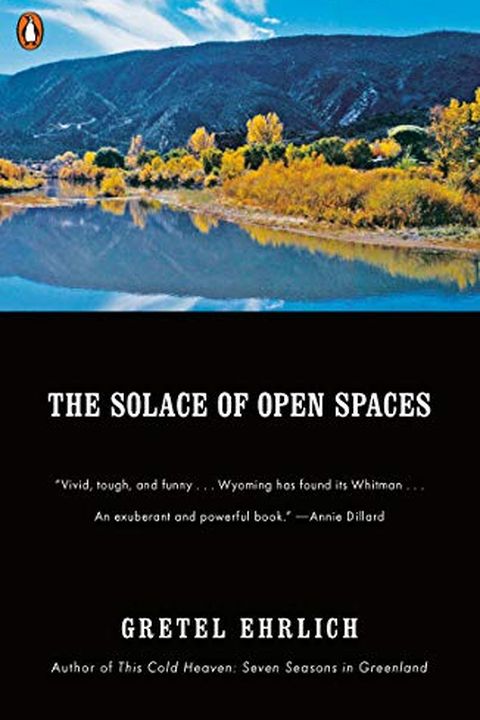The Solace of Open Spaces Quotes
Autumn teaches us that fruition is also death; that ripeness is a form of decay. The willows, having stood for so long near water, begin to rust. Leaves are verbs that conjugate the seasons.
The truest art I would strive for in any work would be to give the page the same qualities as earth: weather would land on it harshly; light would elucidate the most difficult truths; wind would sweep away obtuse padding.
Everything in nature invites us constantly to be what we are. We are often like rivers: careless and forceful, timid and dangerous, lucid and muddied, eddying, gleaming, still.
The truest art I would strive for in any work would be to give the page the same qualities as earth: weather would land on it harshly, light would elucidate the most difficult truths; wind would sweep away obtuse padding. Finally, the lessons of impermanence taught me this: loss constitutes an odd kind of fullness; despair empties out into an unquenchable appetite for life.
All through autumn we hear a double voice: one says everything is ripe; the other says everything is dying. The paradox is exquisite. We feel what the Japanese call "aware"--an almost untranslatable word meaning something like "beauty tinged with sadness.
The toughness I was learning was not a martyred doggedness, a dumb heroism, but the art of accommodation. I thought: to be tough is to be fragile; to be tender is to be truly fierce.
From the clayey soil of northern Wyoming is mined bentonite, which is used as filler in candy, gum, and lipstick. We Americans are great on fillers, as if what we have, what we are, is not enough. We have a cultural tendency toward denial, but being affluent, we strangle ourselves with what we can buy. We gave only to look at the houses we build to see how we build *against* space, the way we drink against pain and loneliness. We fill up space as if it were a pie shell, with things whose opacity further obstructs our ability to see what is already there.
